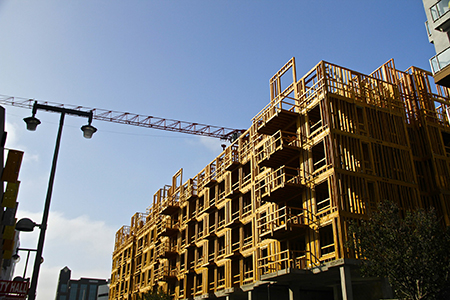The economic impact of the Covid-19 pandemic has been tremendous. Leaders worldwide are in quandary over the possible ways to restart their virus-hit economies without triggering a fresh wave of infection.
In his daily address from Sacramento, California, Governor Gavin Newsom issued a statement on a four-stage reopening of the Californian economy. Local officials have been pressurizing the governor to reopen the state, particularly, in the counties that have managed to flatten the curve.
California was among the first states in the US to direct its citizens to stay-at-home, confining approximately 40 million residents to their homes. The order came into force on 19 March 2020 and exempted essential activities including ‘Essential Critical Infrastructure Workers’. It covers workers engaged in construction, operation, inspection and maintenance of construction sites and projects. While Governor Newson had not declared an end date for the mandate, he detailed the steps for a gradual reopening of the economy. A full reopening would be subject to a thorough assessment based on six criteria.
California lacks the availability of affordable housing facilities before the outbreak of the virus.
California’s housing crisis had been its most pressing problem. Given this, Newsom’s order listed housing construction as an essential service, allowing developers to continue with ongoing projects.
However, in view of the increased risk to construction workers, public officials in many Californian counties and cities voted in favour of shutting down all non-essential construction activities. This covers residential and commercial projects that do not have 10% affordable units. They issued their own stay-at-home directives as a measure to curb the spread. The state of California authorises local health officials to issue safety regulations, on the condition that they are more restrictive than those of the state. Public health officials in 7 counties (Santa Clara, Marin, Contra Costa, San Francisco, San Mateo, Alameda and Santa Cruz, and the city of Berkeley) in the greater San Francisco Bay Area, ordered halting of all commercial, residential and institutions construction projects on 31st March 2020. The ones exempt from the orders included affordable housing, homelessness shelters, transport projects and health care facilities.
On the contrary, the Los Angeles county chose to carry on with its construction projects – commercial, residential and institutional. The city mayor, Eric Garcetti introduced a new set of safety guidelines such as maintaining a physical distance of 6 feet between workers, using protective gear such as googles, gloves, face shields and face masks. Constructions projects were allowed provided they adhere to the guidelines. Garcetti warned against the failure to comply with the prescribed safety regulations.
Despite mounting fears of the coronavirus pandemic, big players in the LA construction industry such as Webcor builders, Hathaway Dinwiddie and Swinerton announced their decision to continue work. The major ongoing projects in Los Angeles County are the $5 billion Sofi stadium in Inglewood, the 2900 Wilshire apartment tower in the Koreatown-MacArthur Park area, the demotion of the four buildings at Los Angeles County Museum of Art, and the 35-story Shoreline Gateway development in Long Beach.
Cities in the northern, central and southern parts of California have decided instead to adhere to the state order related to construction guidelines. Many developers too, irrespective of their state or county’s mandate on construction, are refraining from undertaking any activity due to “fear of increased exposure and health risk”. They claim that it raises their liability.
It will be some time before companies and developers are able to comprehend the effects of the coronavirus on the construction industry.
LA Building Inspections Come to a Halt as Unrest Grips the Nation
The Los Angeles Department of Building and Safety (LADBS) announced the cancelling of all building inspections scheduled for Monday, June 1, 2020. This comes close on the heels of the California State Government’s order to shut down all buildings and offices in the downtown area. The directive was issued taking into account reports of protestors entering and vandalising buildings.
As communicated by the Associated Press, the State Department of Human Resources’ mandate ordering the closure of all offices in the downtown city areas, included offices ranging from the Department of Motor Vehicles to those that certify workers and provide health care. Amy Palmer, spokeswoman for the State Government Operations Agency added that the decision for closure was taken after much deliberation with the California Highway Patrol and the Office of Emergency Services. State departments in the downtown area were advised to close all offices and the staff instructed to stay-at-home.
We Are Here to Support You!
ACO Temporary Power is here to support all construction projects in Southern California. We offer the lowest prices on temporary power, and provide exceptional customer service.

